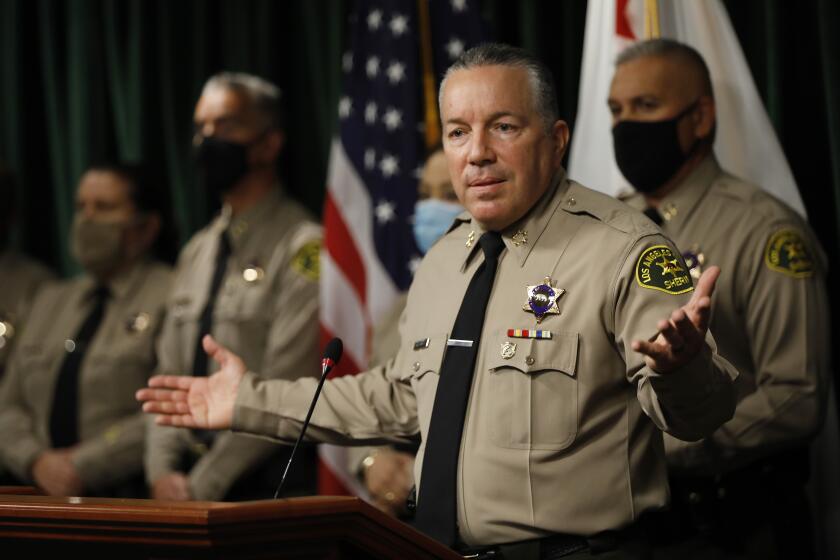Sheriff says gun permit fraud investigation turned over to California attorney general
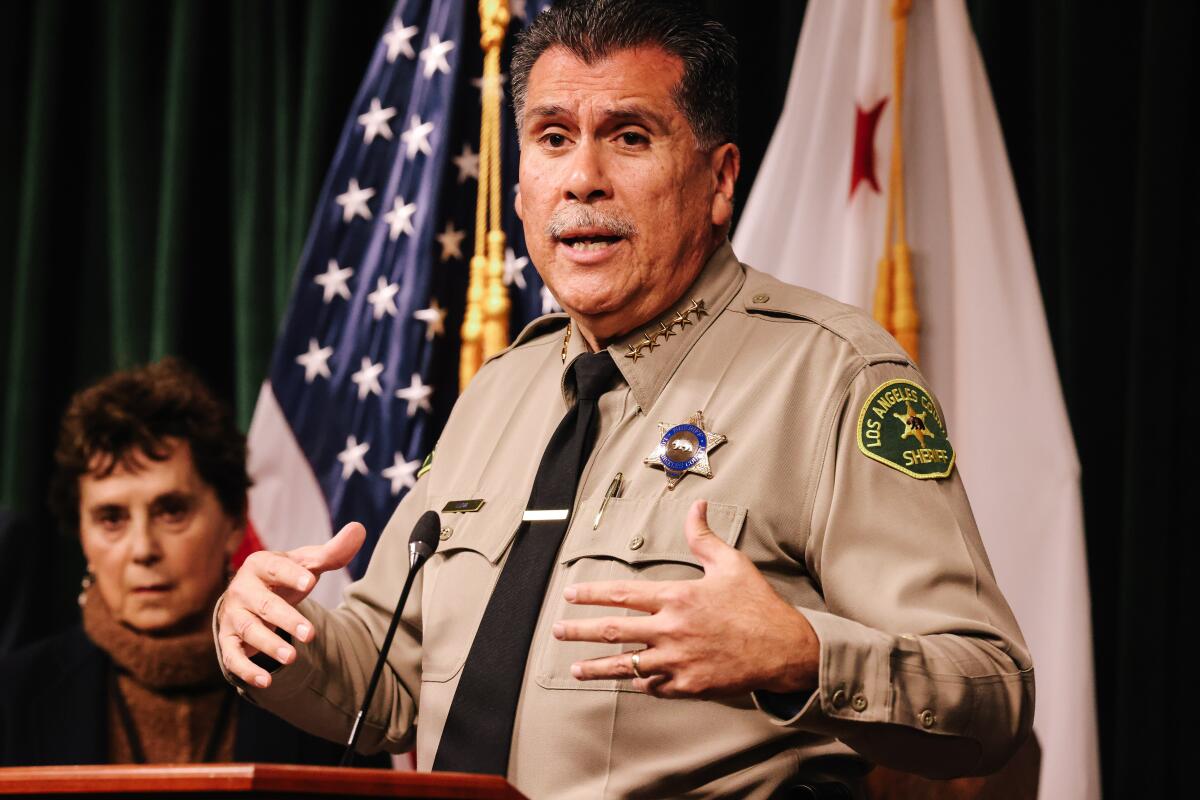
Six months after his predecessor announced a criminal investigation into an alleged fraud scheme involving some of the deputies responsible for issuing concealed carry licenses, Los Angeles County Sheriff Robert Luna confirmed this week that he has turned the matter over to state prosecutors.
Two deputies were relieved of duty last year, and the sheriff’s department raided a Monterey Park gun store as part of an investigation that officials said stemmed from the discovery of “irregularities” in the process for issuing licenses to carry concealed weapons, also known as CCW permits.
News of the investigation stirred controversy on the campaign trail, in part because then-Sheriff Alex Villanueva put his often-criticized Public Corruption Unit in charge of handling the case. That move sparked concerns about the department investigating itself instead of referring the matter elsewhere.
“When I got here, we did turn it over to the state attorney general’s office,” Luna told The Times in an interview Monday at the Hall of Justice. “That had no business being in this building.”
A spokesperson for the California attorney general said the office was “aware of the matter,” but deferred comment to local authorities.
In an emailed statement this week, Villanueva took issue with the suggestion that the sheriff’s department should not handle the investigation directly.
“If Sheriff Luna claims that the CCW/fraud investigation ‘had no business being in this building,’ then that only demonstrates that he himself has no business in the building,” Villanueva said.
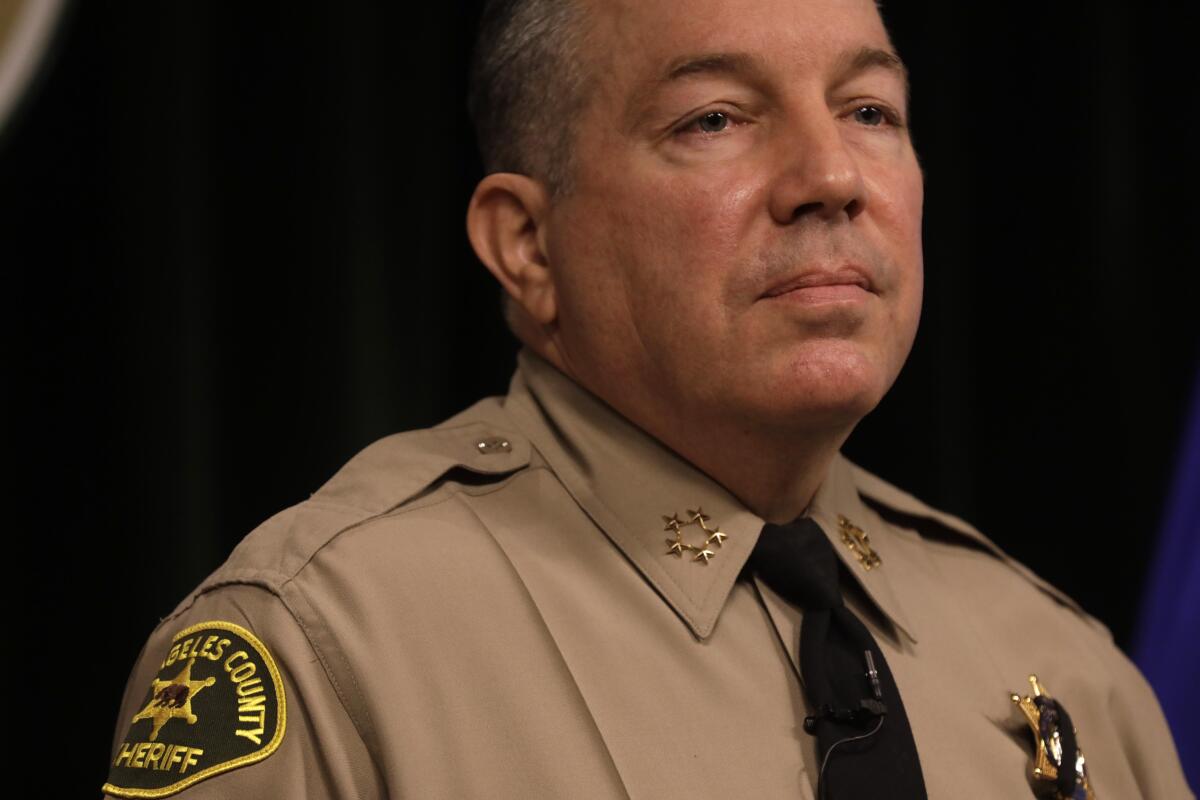
Though the former sheriff said the investigation began in late 2021, the case didn’t become public until September, when the department issued a brief news release.
The statement said that detectives had served warrants at “multiple locations regarding weapon law violations” and that “evidence was seized involving individuals who appear to have been involved in a possible long-term scheme to defraud the citizens of Los Angeles County.”
The release included few details about the specific allegations, other than saying that Villanueva was “disappointed” at the alleged wrongdoing and that the investigation arose as the “result of irregularities discovered in the CCW application process.”
The release didn’t specify what those irregularities were — but, a few weeks later, the Los Angeles Times published an investigation into the department’s handling of concealed carry permits.
A Times investigation finds that dozens of L.A. County Sheriff Alex Villanueva’s campaign donors have been granted permits to carry weapons in public.
Though Villanueva had repeatedly boasted of his success in increasing the number of people allowed to carry guns in public, The Times found that among the thousands who received such permits were dozens of Villanueva donors and others with special links to the then-sheriff.
These permit recipients often gave questionable reasons for needing to be armed, received their permits more quickly than average or were assisted by two deputies who worked directly for Villanueva.
Those deputies — Gisel Del Real and Carrie Robles — were each relieved of duty in September, and detectives showed up at Del Real’s home to ask her questions and seize evidence.
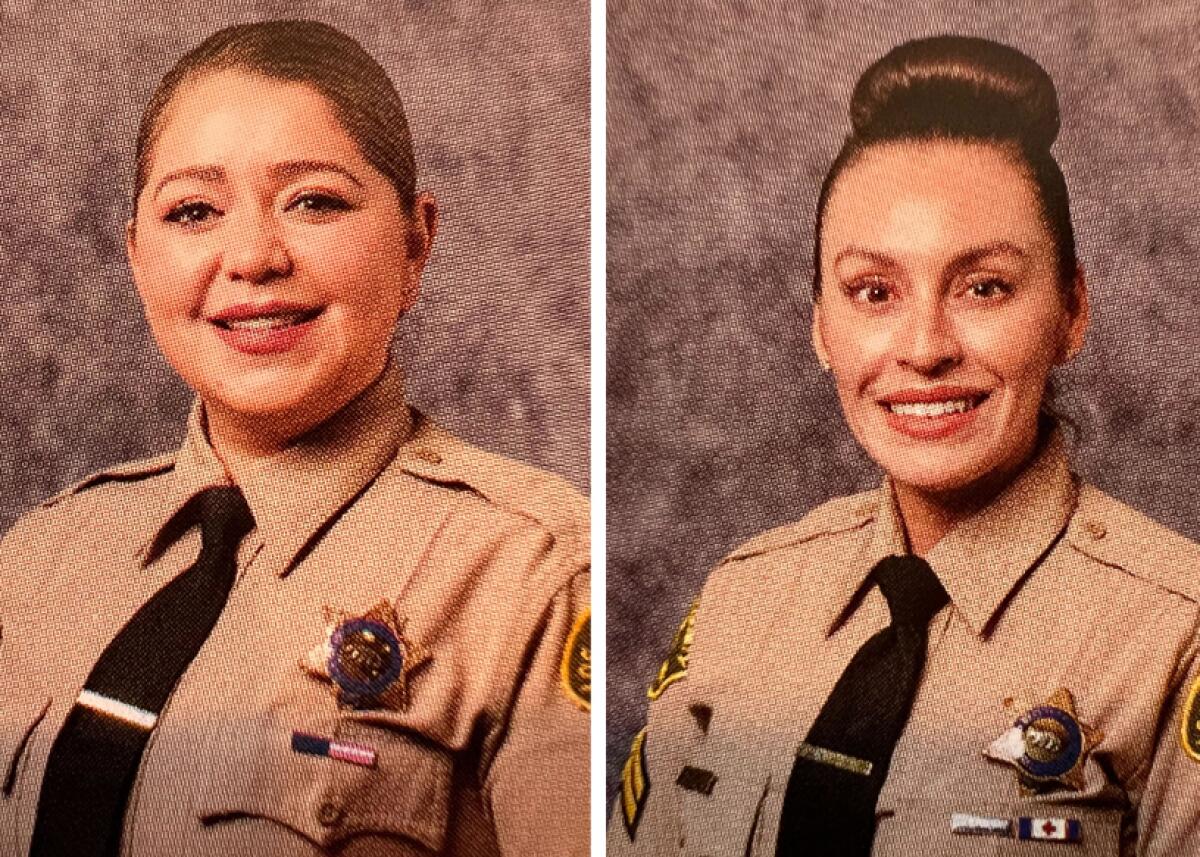
Three months later, Del Real and Robles filed a lawsuit in state court, alleging that they’d been sexually harassed at work as early as 2020 and that they’d only been put under criminal investigation in retaliation for reporting the harassment.
“The investigation is related to the department issuing CCWs to numerous individuals, some of whom do not meet the legal requirements to receive a CCW,” they wrote in their lawsuit. “Plaintiffs both worked in the CCW Unit but had ministerial roles and did not make determinations on which individuals should be issued a CCW.”
In court filings, the lawyers for the county denied the allegations and offered a number of defenses, including that the county’s actions were “taken for legitimate, nondiscriminatory, nonpretextual, nonharassing, and nonretaliatory reasons.”
Attorneys for the women did not offer additional comment for this story.
There has long been a lack of clarity as to what entities are handling the case. Initially, the department said in its September release that the warrants were served “in conjunction with state and federal agencies.”
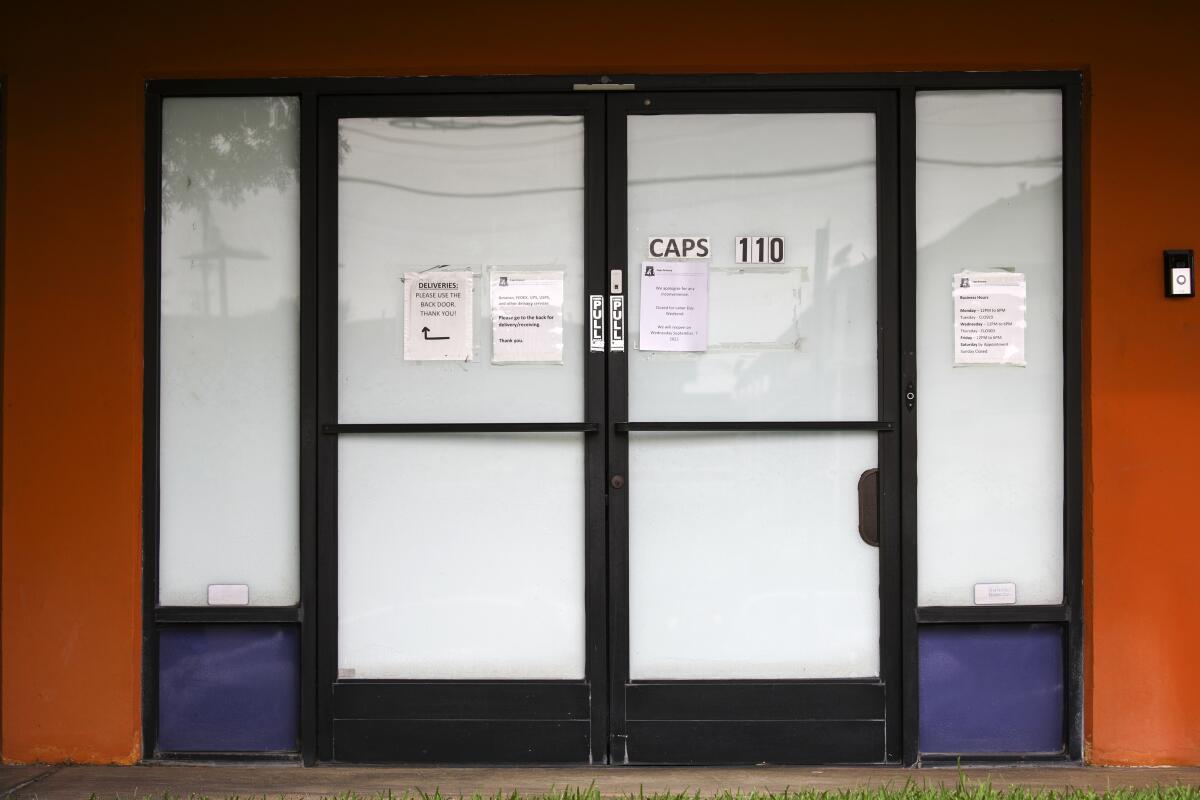
But at the time, officials at the Bureau of Alcohol, Tobacco, Firearms and Explosives told The Times they were not involved, and a spokesperson for the FBI told a local television station the same thing. This week, Villanueva said his Public Corruption Unit had previously reached out “to both state and federal law enforcement agencies for assistance,” but that “the Internal Criminal Investigation Bureau ultimately took charge of the criminal investigation, which is standard practice and literally the core mission of that unit.”
On the campaign trail, Luna criticized the former sheriff for his handling of the investigation.
“The sheriff quickly tried to cover his tracks and search the gun store and relieved two deputies who may be involved in the scheme,” he said in October. “But of course, and this is critical, the sheriff should not, and cannot investigate himself.”
This week he reiterated that point.
“How can you legitimately tell the public that your people are investigating it, even if you are claiming that you have recused yourself from those cases?” he told The Times. “That’s an absolute conflict of interest.”
Times staff writer Alene Tchekmedyian contributed to this report.
More to Read
Sign up for Essential California
The most important California stories and recommendations in your inbox every morning.
You may occasionally receive promotional content from the Los Angeles Times.
